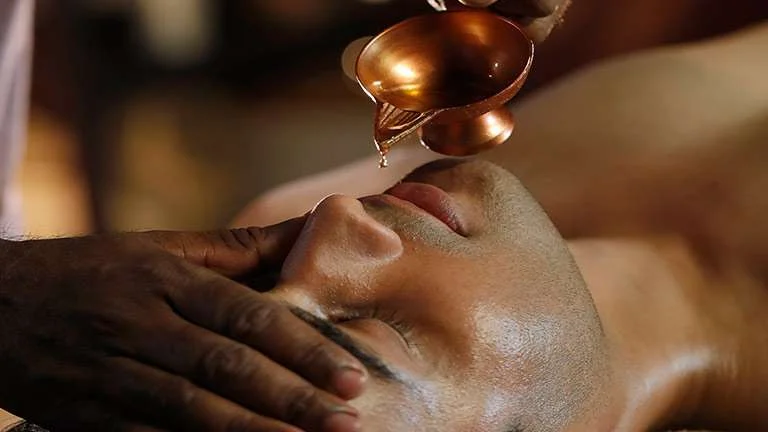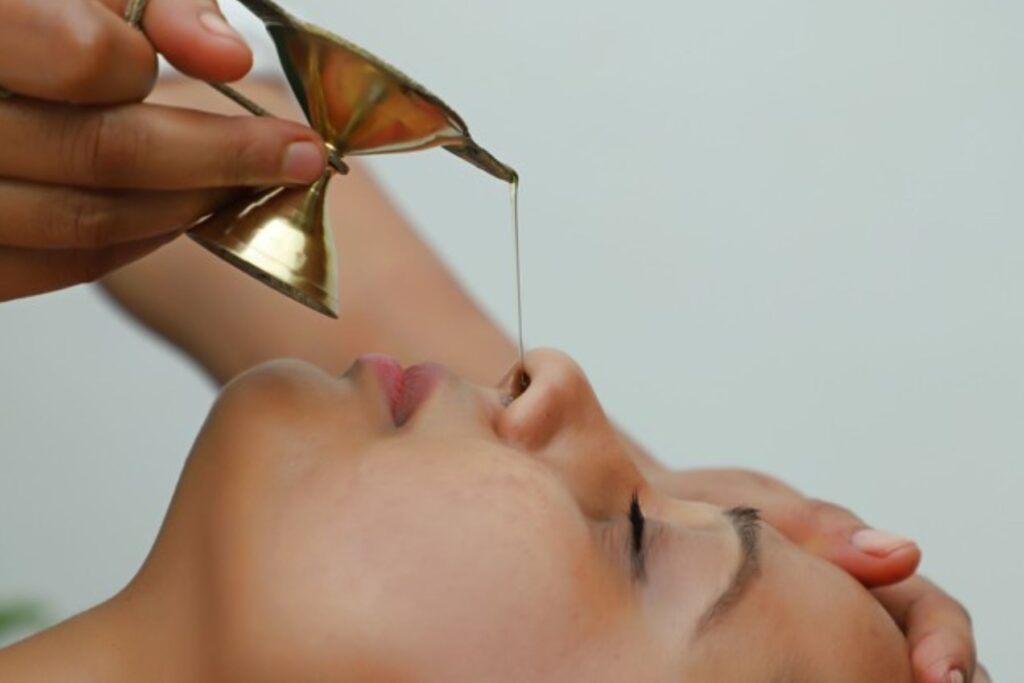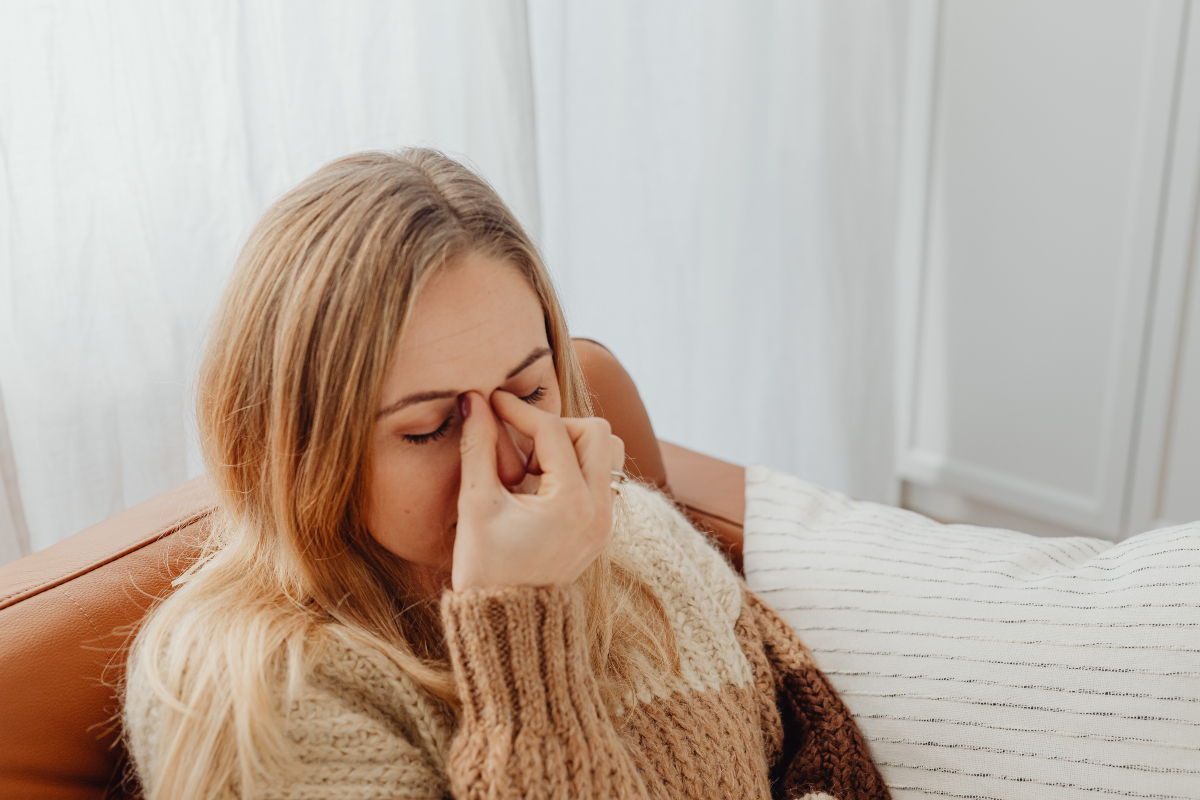Ask Ayurvedic doctor a question and get a consultation online on the problem of your concern in a free or paid mode. More than 2,000 experienced doctors work and wait for your questions on our site and help users to solve their health problems every day.
Nasal Polyps Treatment in Ayurveda: Natural Healing Approaches

Introduction to Nasal Polyps and Ayurveda
Nasal polyps are soft, painless growths that develop on the lining of the nasal passages or sinuses. While they are non-cancerous, they can cause significant discomfort, including nasal congestion, loss of smell, and sinus infections. Ayurvedic treatments focus on addressing the root causes of nasal polyps, such as imbalanced doshas and accumulated toxins in the body. By using natural remedies, Ayurveda offers a holistic approach to managing and reducing the size of nasal polyps, providing relief from symptoms and promoting overall health.
Don't wait or self medicate. Start chat with Doctor NOW
Historical Roots & Ayurvedic Perspective
In Ayurveda, nasal polyps are considered a manifestation of an imbalance in the Kapha dosha, which governs mucus production and fluid retention in the body. The accumulation of excess Kapha in the nasal passages leads to swelling and the formation of polyps. Ayurvedic texts highlight the importance of detoxification and balancing the doshas through dietary changes, herbal remedies, and lifestyle practices to treat nasal polyps naturally.
Key Ayurvedic Remedies for Nasal Polyps
1. Herbal Treatments
Several herbs in Ayurveda are known for their ability to reduce inflammation, clear nasal passages, and balance the doshas. Key herbs include:
- Turmeric (Curcuma longa): Known for its anti-inflammatory and antimicrobial properties, turmeric helps reduce swelling and infection in the nasal passages.
- Ginger (Zingiber officinale): With its ability to reduce Kapha and stimulate circulation, ginger is often used to clear nasal blockages and reduce polyps.
- Triphala: This combination of three fruits helps detoxify the body, balance the doshas, and improve overall health, which can aid in preventing and reducing the formation of polyps.
- Tulsi (Ocimum sanctum): Known for its antibacterial and anti-inflammatory properties, tulsi helps reduce infection and inflammation in the sinuses.
2. Nasal Oil Application (Nasya)
Nasya is an Ayurvedic therapy that involves the application of herbal oils into the nostrils. This treatment helps to clear the sinuses, reduce inflammation, and promote the elimination of toxins. Anu Taila and Shadbindu Taila are commonly used oils for Nasya, as they help in reducing the swelling of nasal polyps and promote proper airflow through the nasal passages.
3. Steam Inhalation with Ayurvedic Herbs
Inhaling steam infused with Ayurvedic herbs can help loosen mucus, reduce inflammation, and improve nasal airflow. Herbs such as eucalyptus, mint, and camphor are commonly used in steam inhalation to clear nasal blockages and reduce the symptoms associated with nasal polyps.
4. Diet and Lifestyle Adjustments
Ayurvedic dietary recommendations for managing nasal polyps emphasize the need to reduce Kapha-aggravating foods such as dairy, fried foods, and sugar. Instead, a diet rich in bitter and pungent foods such as leafy greens, spicy herbs, and fresh vegetables can help balance the doshas. Maintaining a regular sleep schedule and managing stress through yoga and meditation also plays a vital role in preventing the recurrence of polyps.
How Ayurvedic Treatment Works for Nasal Polyps
Ayurvedic remedies work by targeting the underlying causes of nasal polyps, which are often linked to an imbalance of Kapha dosha. By using anti-inflammatory herbs, detoxification techniques, and lifestyle changes, Ayurveda helps to reduce the swelling of the nasal passages, alleviate symptoms, and prevent further growth of polyps. Additionally, the holistic approach of Ayurveda aims to strengthen the immune system and support the body’s natural healing abilities, allowing for long-term relief from nasal polyps.
Choosing the Right Ayurvedic Remedies
When opting for Ayurvedic treatments, it is crucial to consult with a qualified Ayurvedic practitioner who can evaluate your unique constitution and symptoms. Personalized guidance ensures that the remedies are tailored to your specific health needs, improving their effectiveness and safety. Always choose high-quality herbs and oils from trusted Ayurvedic brands to ensure the best possible results.
Recommended Dosage & Usage
The dosage of Ayurvedic remedies for nasal polyps varies depending on the individual’s constitution and the severity of the condition. Some general recommendations include:
- Turmeric: 1/2 teaspoon of turmeric powder mixed with warm water or milk can be consumed daily.
- Triphala: Triphala can be taken in powdered form (1 teaspoon) before bed to support detoxification.
- Nasya Oils: Apply 2-3 drops of Ayurvedic oils such as Anu Taila into each nostril once or twice daily.
- Steam Inhalation: Inhale steam infused with herbs like eucalyptus for 10-15 minutes, twice daily.
As always, it’s important to follow the guidance of an Ayurvedic professional to determine the correct dosage for your specific needs.
Potential Side Effects & Precautions
While Ayurvedic treatments for nasal polyps are generally safe, there are a few precautions to keep in mind:
- Digestive Discomfort: Some individuals may experience mild digestive upset when using herbal remedies like turmeric or Triphala. Start with a lower dose and gradually increase it as needed.
- Pregnancy & Nursing: Pregnant or nursing women should consult an Ayurvedic practitioner before using certain herbs or treatments.
- Allergic Reactions: Discontinue use if any allergic reactions, such as rashes or irritation, occur after applying oils or using herbs.
- Consult a Professional: Always consult with an Ayurvedic practitioner to ensure the treatments are appropriate for your specific condition.
Frequently Asked Questions for Nasal Polyps Treatment in Ayurveda
How does Ayurveda treat nasal polyps naturally?
Ayurveda treats nasal polyps by balancing the Kapha dosha and using herbs and therapies that reduce inflammation, clear nasal passages, and promote detoxification. Treatments like turmeric, ginger, Triphala, Nasya, and steam inhalation help to shrink polyps and alleviate symptoms.
What are the main causes of nasal polyps according to Ayurveda?
Nasal polyps are primarily caused by an imbalance of Kapha dosha, which leads to excessive mucus production and fluid retention in the nasal passages. This can result from poor diet, stress, environmental factors, and accumulated toxins (ama) in the body.
Can Ayurvedic remedies reduce the size of nasal polyps?
Yes, Ayurvedic remedies, such as turmeric, ginger, Nasya oils, and detoxifying herbs, can help reduce inflammation, clear mucus, and balance doshas, thereby reducing the size of nasal polyps over time. Consistent use of these treatments can lead to significant improvements in symptoms.
Are there any specific dietary recommendations for managing nasal polyps?
Ayurveda recommends avoiding Kapha-aggravating foods like dairy, fried foods, and sugary items. Instead, incorporate bitter, pungent, and astringent foods like leafy greens, spices, and vegetables to balance the doshas and reduce nasal polyps.
Is Nasya oil effective for treating nasal polyps?
Yes, Nasya oil is an effective Ayurvedic treatment for nasal polyps. By applying herbal oils like Anu Taila into the nostrils, you can help reduce inflammation, clear mucus, and improve airflow, providing relief from nasal polyps and related symptoms.
How long will it take to see results from Ayurvedic treatments for nasal polyps?
The time it takes to see results from Ayurvedic treatments varies depending on the severity of the condition and consistency of treatment. Generally, noticeable improvements can occur within a few weeks of regular use, although complete relief may take longer.
Can I use Ayurvedic remedies alongside conventional treatments for nasal polyps?
Yes, Ayurvedic remedies can complement conventional treatments for nasal polyps. However, it’s important to consult with both your Ayurvedic practitioner and medical doctor to ensure there are no conflicts between treatments and to optimize your overall care.
Conclusion & Expert Insights
Nasal polyps can significantly impact a person’s quality of life, but Ayurveda offers a holistic and natural approach to managing and reducing these growths. By addressing the underlying causes of polyps, balancing doshas, and using therapeutic herbs and oils, Ayurvedic treatments can provide long-term relief. Always consult with a qualified Ayurvedic practitioner to tailor the treatment to your specific needs and ensure the best outcomes for your health.
References & Further Reading
- Lad, V. (2002). Ayurveda: The Science of Self-Healing.
- Sharma, P.V. (1995). Ayurvedic Healing: A Comprehensive Guide.
- National Institute of Ayurveda:
- Journal of Ayurveda and Integrative Medicine for research articles on nasal polyps and Ayurvedic treatments.



